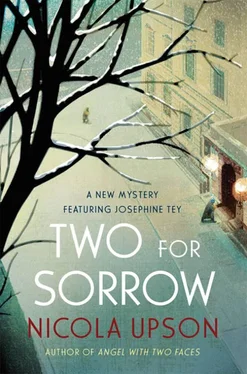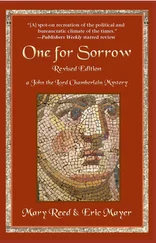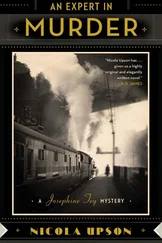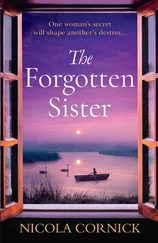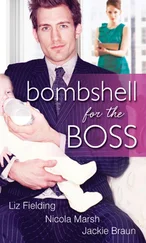‘Possibly, but don’t forget she was an unmarried mother. There won’t have been many options open to her, and it sounds like Sach offered her security—a roof over her head and no questions asked about her circumstances. That must have been like a gift from heaven. Principles are one thing, Miss, but the moral high ground may as well be Timbuktu if you’re lying in the gutter.’ Josephine was quiet, thinking about what he had said. ‘I’m not saying that this girl was in the right,’ he added, ‘and I’m certainly not condoning what Sach and Walters got up to—but let’s not forget that women went to that nursing home for a reason, and I don’t see anybody rushing to make the men who got ’em pregnant take their share of the blame.’
‘It’s funny you should say that,’ she agreed. ‘I found it outrageous that the men who gave evidence in court—the fathers, I mean—were all allowed to stay anonymous while the women had their names and descriptions plastered all over the newspapers.’ She looked at Fallowfield, ashamed that a man in his fifties who worked in a notoriously chauvinistic profession had been less judgemental of her own sex than she was. ‘You’re right, of course—there’s more than one way to destroy a life. It’s a pity there aren’t more men about like you, Bill.’
He smiled. ‘I’m sure it’s easier to be fair-minded when you’re a bachelor and long past the courting age. Look—there’s the Angel. We’re only a couple of minutes away now.’ The traffic was at its height here, where several of the great northern roads converged. They drove slowly past the underground station, then a substantial Lyons Corner House, which looked shiny and familiar in comparison with the shabbiness of the other public buildings, and Josephine was relieved when Fallowfield turned left into the peace of Colebrook Row. A pleasant line of public gardens stretched half the length of the street, separating it from the neighbouring terrace and providing a welcome contrast to the elegant but relentless Georgian housing on either side.
Danbury Street ran parallel with Colebrook Row and was reached via another string of uniform houses. The buildings here were slightly more modern—early Victorian, Josephine guessed—and not as spacious; most had just three floors, including a basement. The area was closer to the heart of the city, and many houses showed signs of multiple occupancy, suggesting that a lot of the accommodation was still rented rather than privately owned. ‘Which one was it?’ she asked, opening the car door. Fallowfield pointed over to his left. Josephine looked up at the building in which Annie Walters had killed at least twice, and was interested to see that it was one of the few houses which looked genuinely loved. It was nearly dark now, and the November evening was hinting at snow to come, but the warmth of the softly lit rooms could not have been further from the drab, suffocating boarding house that she had imagined from the newspaper descriptions of Walters’s lodgings. Better kept than most, the house was obviously in the middle of preparations for a family celebration: a child’s toy hung in one of the upstairs windows, and a pile of presents stood proudly in the window to the right of a smart front door. As she watched, an attractive woman led a girl of three or four to the sink in the basement kitchen, and lifted her up so that she could wash what looked like pastry off her hands. The woman glanced up at them and smiled, but Josephine—embarrassed to have been caught staring—moved hurriedly away, pulling Fallowfield with her.
‘It’s the same time of year that Walters was arrested, almost to the day, but it couldn’t be more different, could it?’ she said, as the two of them loitered suspiciously further up the street. ‘It chills me to see a child there. I’ve always thought that buildings must hold some sort of trace of what’s happened in them, but I doubt that family has any sense of the sadness which one of those rooms witnessed. And thank God—they’d be horrified, I’m sure. It’s one thing to gawp at a house of notoriety, but quite another to live in it.’ She looked around her, trying to build up an impression of the sights that had greeted Walters as she came and went from her lodgings each day, and something further up the street caught her eye. ‘That’s not a canal up there, is it?’ she asked.
‘Yes, Miss—it’s the Grand Union,’ Fallowfield said, intrigued by her surprise. ‘Why? Is that important?’
‘I don’t know about important,’ Josephine said, walking up the road to take a closer look, ‘but there’s an account in the newspapers of the journey that Walters took to dispose of the dead baby on the day she was arrested. She went all the way to South Kensington Station, partly on foot and partly by bus, and I’d assumed that was because there was nowhere safe for her to get rid of it closer to home. But surely it would have been much easier to weigh the body down and throw it in the canal?’
‘Like Dyer, you mean.’
‘Is that what she did?’
‘Yes—she got away with it for years. Then the stupid woman wrapped a dead baby up in some brown paper that had her address all over it.’
They stopped at some railings and looked down into the water. ‘Why would you risk tramping all over London with a dead baby clutched to your bosom when you have a canal less than a hundred yards from your doorstep?’
‘Maybe it was too close to home,’ Fallowfield suggested. ‘Or maybe she liked the danger. Some people do, you know. Then they push their luck too far—and God bless ’em for their arrogance, otherwise we’d never catch them.’
Josephine had gone quiet, trying to imagine what it felt like to carry death so close and to picture the sort of woman who would choose that rather than take the easier option. She thought again of how Walters had stopped to drink cocoa with a lifeless bundle in her arms, how she had taken the children home with her rather than dispose of them as quickly as possible. ‘Perhaps I’m wrong to try to understand her,’ she said. ‘Perhaps she was quite simply a monster.’
‘Then she’d be the exception, Miss. I’ve arrested a fair few murderers in my time, and they’re usually depressingly ordinary people, caught on the wrong foot. Evil isn’t as common as weakness,’ he added gently, and she wondered if he was trying to reassure her.
‘Evil or weakness—the end result is much the same for the victims. I don’t suppose we’ll ever know how many there were or what happened to the other bodies.’
‘No. Kids turned up dead all the time back then—for lots of reasons, not just baby farming. It was the hardest thing we ever had to deal with—and it didn’t get any easier for happening so often.’
‘Although judging by what I read this morning, East Finchley had more than its fair share,’ she said wryly. ‘To my cynical eye, rather too many seem to have turned up there just before Sach and Walters were arrested, although no one tried to make the connection.’
‘They didn’t have to—they only needed one body for a conviction.’
‘I wonder if Walters ever worked for other women?’ Josephine said as they headed back to the car. ‘Her share of the money was very small in comparison to Sach’s, and it crossed my mind that she might have had a few clients on the go at the same time. Baby farming obviously wasn’t an unusual crime.’
‘It certainly wasn’t, although there were different degrees of it. Some women—like Sach and Walters—had a thriving business going, but others were tarred with the same brush for much less.’
‘Yes—I read about another woman who was in court while Sach and Walters were on remand. The stories ran side by side for a bit in the press. Eleanor Vale?’
Читать дальше
